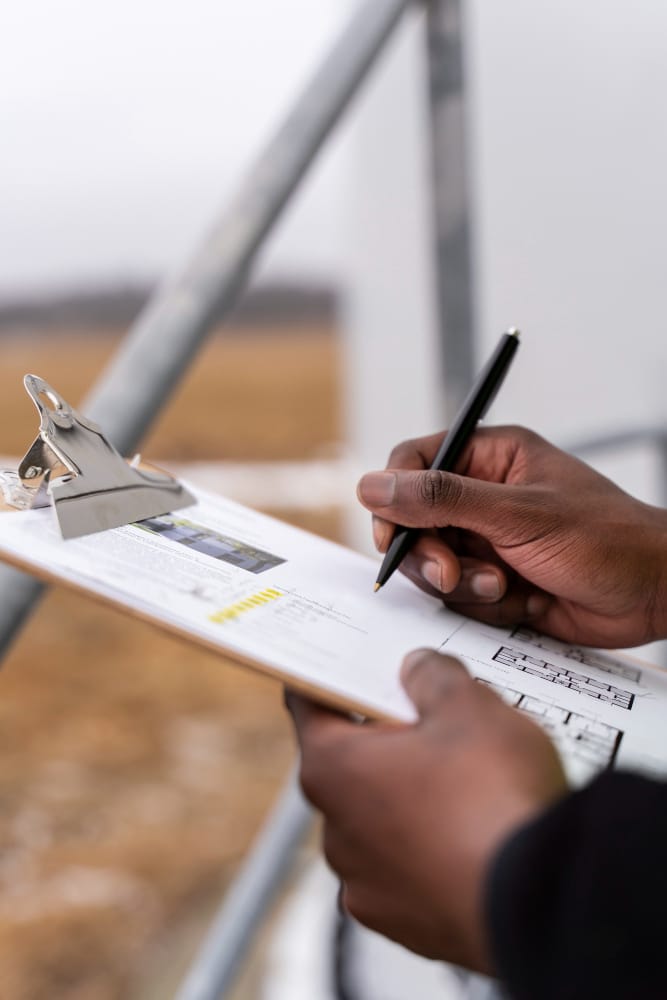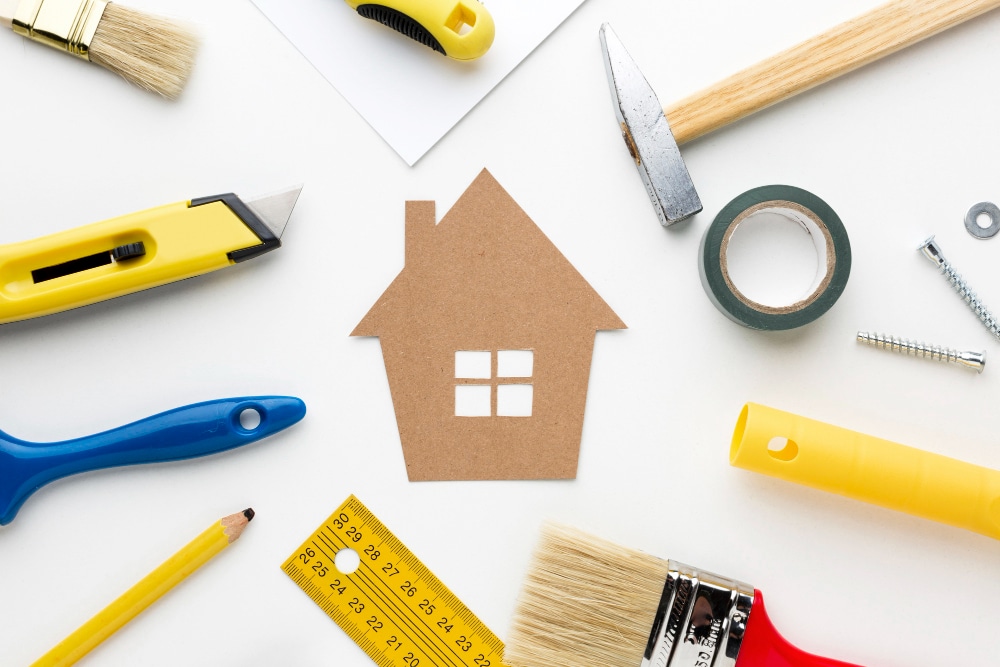
The Ultimate Guide to Remodeling Permits: 6 Essential Steps for Success
Remodeling permits are essential for kitchen and bathroom projects as they can breathe new life into your home, adding functionality and increasing its value. However, before you jump into renovating these spaces, it’s crucial to understand the importance of obtaining the necessary remodeling permits. In this blog, we will explore the cost of permits, their significance for different types of remodels, and why specialized inspections might incur additional fees.
Contents
- Table of Contents
- Why Permits Matter for Kitchen and Bathroom Remodels
- Cost of Kitchen and Bathroom Remodeling Permits
- Minor Remodels: Permits and Costs
- Major Remodels: Permits and Costs
- Specialized Inspections and Additional Fees
- Benefits of Obtaining Permits for Remodeling Projects
- Frequently Asked Questions
Table of Contents
Why Permits Matter for Kitchen and Bathroom Remodels
Whether you’re looking to upgrade your kitchen countertops, replace those outdated cabinets, or swap out those old fixtures, these cosmetic changes can make a world of difference in transforming your living space. But before you dive headfirst into your mini-makeover, it’s important to consider some essential factors – permits and costs.
You see, even seemingly small changes could have unforeseen consequences that could impact your electrical or plumbing systems. And when it comes to the safety and compliance of your home, you don’t want to take any chances. That’s where permits come into play. They ensure that the work being done meets all the necessary standards and guidelines.
Obtaining permits for your kitchen and bathroom remodeling projects is more than just a regulatory requirement. Permits serve as a safeguard to ensure that the work performed conforms to safety standards and local building codes. They help protect your investment and provide assurance that your remodel is compliant, which is especially important when it comes to structural or system changes.
Cost of Kitchen and Bathroom Remodeling Permits
When budgeting for your kitchen or bathroom remodel, it’s essential to consider the cost of permits. Permit expenses can vary based on the scope of your project. For minor remodels, where you’re making surface-level changes like updating fixtures or countertops, permit costs typically fall within the range of $100 to $500. On the other hand, major remodels involving structural alterations or system overhauls, such as moving walls or rewiring, tend to incur higher permit costs, ranging from $500 to $2,000 or more.
It’s important to note that these estimates may fluctuate based on your geographical location and the specific details of your remodel. Different regions may have varying fee structures, and the complexity of your project can influence the permit expenses. Therefore, when creating your budget, it’s advisable to research local permit fees and consult with relevant authorities to obtain accurate estimates.
This proactive approach not only helps in avoiding unforeseen expenses but also contributes to a smoother and more transparent remodeling process. So, whether you’re envisioning a minor refresh or a major transformation, factoring in permit costs from the outset ensures a well-planned and financially sound kitchen or bathroom remodel.
Minor Remodels: Permits and Costs
Now, you might be thinking, “But it’s just a small project, do I really need permits?” The answer is: it depends. Even though minor remodels typically don’t require as many permits as major renovations, it’s vital not to overlook their significance.
Minor remodels typically include cosmetic changes such as replacing countertops, cabinets, or fixtures. While the permit costs may be lower for these projects, it’s crucial not to overlook their significance. Even seemingly small changes can impact electrical or plumbing systems, requiring permits to ensure safety and compliance.
Major Remodels: Permits and Costs
Major kitchen and bathroom remodels that involve substantial structural changes, like removing walls or relocating plumbing, require more extensive permits. These projects may also require additional inspections to ensure compliance with building codes. The costs for these permits can be significant, ranging from $500 to $2,000 or more.
Specialized Inspections and Additional Fees
In some cases, specialized inspections might be necessary for certain aspects of your kitchen or bathroom remodel. These inspections ensure that specific components, such as electrical wiring or plumbing, meet industry standards. Keep in mind that these specialized inspections may result in additional fees, so it’s essential to factor them into your budget.
Benefits of Obtaining Permits for Remodeling Projects
– Compliance with safety standards and building codes.
– Protection of your investment and the value of your home.
– Assurance that the work is performed by qualified professionals.
– Streamlined process for potential future resale of your property.
When undertaking kitchen and bathroom remodeling projects, it’s crucial to understand the significance of obtaining the necessary remodeling permits. Minor remodels may require permits with costs ranging from $100 to $500, while major remodels involving structural or system changes can cost $500 to $2,000 or more. Special inspections may incur additional fees. By obtaining remodeling permits, you ensure that your remodel complies with safety standards and local building codes, protecting your investment and adding value to your home.
Ready to give your kitchen and bathroom a cool makeover? Don’t forget to get those important remodeling permits! Whether you’re changing a few things or doing a big remodel, these permits are your buddies. Want more ideas and tips? Check out our Instagram @kitchenandbathshop. We’ve got awesome pictures, videos and ideas that are helpful to make your remodeling dreams real. Follow us today for a daily dose of inspiration!
Frequently Asked Questions
Q1: Why do I need a permit to remodel my bathroom or kitchen?
A permit makes sure your remodel plan is safe and follows local building rules. It checks that everything is done right, like plumbing and wiring, to keep you and your home safe. Without a permit, you might have to redo the work or have trouble selling your home later.
Q2: How do I get a permit for my remodel?
To get a permit, you or your contractor must submit your remodel plans to your local building department. They will look at your plans to make sure they meet safety and building codes. After reviewing, they will give you the permit to start work. Sometimes, they might ask for more information or changes to the plan.
Q3: What happens if I remodel without a permit?
If you remodel without a permit, you might have to pay fines or remove the changes you made. It can also cause problems when you try to sell your home, as buyers might not want a home with unpermitted work. It’s best to get a permit to avoid these problems.
Q4: Can I do the work myself, or do I need to hire a professional?
You can do the work yourself if you feel confident and it’s allowed by your local codes. However, for complex tasks like plumbing or electrical work, it’s safer and sometimes required to hire a professional. They know how to do the work safely and meet the code requirements.
Q5: How much does a remodel permit cost?
The cost of a permit can vary depending on where you live and the size of your project. Small projects might cost between $100 to $500 for a permit, while big remodels could be $500 to $2,000 or more. It’s important to include this cost in your budget when planning your remodel.



